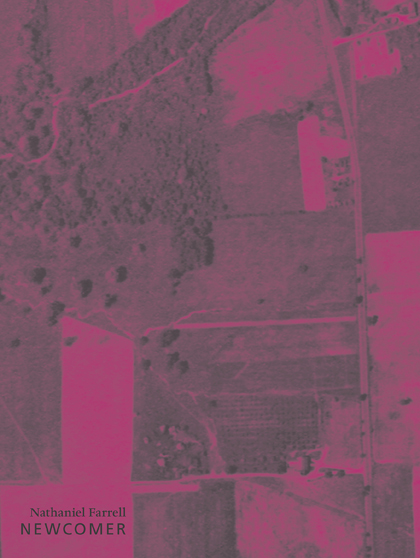These are Nathaniel Farrell’s poems, of course, but when I read them they are mine, too: common life told with common words, resounding and clean. Their setting may be historical, ostensibly the Civil War, but their concerns are the stuff of daily life, glimpsed from porches and saddles and moonlit camps and recorded with quiet intensity. The simple counters of weather, family, fields, and roads make for homesick songs that anyone might sing. In an age of hard trying, such anonymity is a virtue and a pleasure.
Devin Johnston
With mesmerizing grace, Nathaniel Farrell’s poem sequence interlaces the world of memory with radically immediate impressions of the land. Sense exceeds circumstance as a soldier from an indeterminate time, fighting an indeterminate war, moves through new country, grasping at the specters of the rural life he left. In faceted lines and precise diction, Farrell creates a landscape where the enemy may have just passed “the same hawks menaced by little birds,” where soldiers become “nothing more than needle and thread / pushed and pulled in and out of the land.” Newcomer is a stunning milito-pastoral in daguerreotype, fading to amber at the edges.
Ted Mathys
The body is strongly present everywhere in Newcomer. The body of the soldier who feels the weight of wet wool, the body of the child who is both dreaming about a pony and "feeling small and knobby as a pony," the traveler patting the dog: "its torso an echo chamber / for the palm." Stones in the grass becomes "like tiny teeth in the distance." Images like these appear all throughout the collection, and with them Farrell builds simple, but moving expressions for the narrators orientation in the world, and for his homebound gaze. Simplicity, precision and sometimes a kind of mystery that few poets manage to accomplish: One will find all of this in Farrell's book.
Carina Elisabeth Beddari
